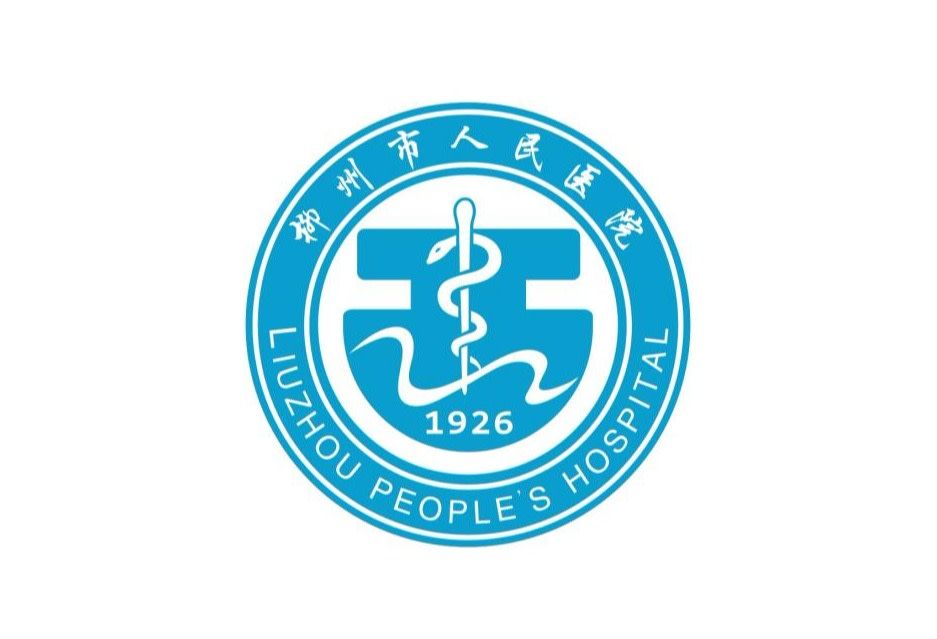预约演示
更新于:2025-05-07

Yue Bei People's Hospital
更新于:2025-05-07
概览
关联
81
项与 粤北人民医院 相关的临床试验NCT06763666
A Multicenter, Prospective, Randomized Controlled Study Comparing the Efficacy and Safety of CLAG(Cladribine, Cytarabine and G-CSF) Combined With Venetoclax and CLAG in the Treatment of Relapsed/Refractory Acute Myeloid Leukemia
This is a multicenter, prospective, randomized controlled clinical study comparing the efficacy and safety of CLAG+VEN and CLAG regimens in relapsed/refractory(r/r) AML.
开始日期2025-02-01 |
申办/合作机构 |
NCT06767722
Effectiveness of a Lifestyle Intervention for Pregnant Women with Abnormal Glucose Metabolism in Early Pregnancy: EAGM Randomized Controlled Trial
This is a multicentre, parallel-group, open-label, pragmatic, randomised-control trial of early lifestyle intervention versus routine prenatal care by random allocation (1:1) in women with early abnormal glucose metabolism (EAGM) to compare the incidence of large-gestational age and preterm birth between two groups. We aim to assess the effectiveness of early lifestyle interventions and to provide evidence for the optimal standard management for Chinese women with EAGM.
开始日期2025-01-01 |
申办/合作机构  中山大学附属第一医院 中山大学附属第一医院 [+5] |
NCT06713421
The Effects of Premedication With Pronase and Postural Exercise on Mucosal Cleanliness During Painless Esophagogastroduodenoscopy: A Prospective, Multicenter, Randomized Controlled Study Based on Artificial Intelligence Assessment
Gastric cancer and esophageal cancer are common malignant tumors that threaten people's life and health. Esophagogastroduodenoscopy (EGD) is an important tool for screening upper gastrointestinal tumors, especially early tumors, and an effective method for detecting other upper gastrointestinal lesions, including ulcers and polyps. However, during EGD examination, mucus and foam can reduce the cleanliness of the mucosa and limit the operator's visual field, resulting in missed lesions and misdiagnosis. Previous studies have shown that preoperative medication with pronase and dimeticone is correlated with the improvement of upper gastrointestinal mucosal cleanliness. However, the number of samples in such studies is limited, and the artificial judgment is not objective enough to evaluate the cleanliness of upper digestive tract mucosa. And, whether a postural exercise is necessary for premedication with pronase or dimeticone remains unclear. Our team design this experiment to examine the efficacy of using premedication of dimeticone/pronase with a postural exercise on visualization of the mucosa before painless EGD. The investigators aim to provide new evidence to optimize the use of premedication with EGD.
开始日期2024-12-01 |
申办/合作机构 海军军医大学第一附属医院 [+25] |
100 项与 粤北人民医院 相关的临床结果
登录后查看更多信息
0 项与 粤北人民医院 相关的专利(医药)
登录后查看更多信息
62
项与 粤北人民医院 相关的文献(医药)2025-07-01·Cellular Signalling
LncRNA AC100865.1 regulates macrophage adhesion and ox-LDL intake through miR-7/GDF5 pathway
Article
作者: Chen, Jinfeng ; Chen, Baofeng ; Liu, Xiangying ; Liu, Xiangyang ; Liang, Jiarong ; Chen, Yunxian ; Ren, Yong
2025-04-21·Cancer Research
Abstract 4686: Efficacy and safety of efbemalenograstim alfa as primary prophylaxisfor concurrent chemo-radiotherapy induced neutropenia
作者: Li, Qiwen ; Wen, Zunbei ; Huang, Rong ; Chen, Yuanyuan ; Zhang, Xuefang ; Ji, Yongling ; Wang, Chen ; Lai, Shuzhen ; Chen, Ming ; Ouyang, Yi ; Li, Minying
2025-04-01·Cancer Cell
Neoadjuvant toripalimab plus nimotuzumab combined with taxol-based chemotherapy in locally advanced penile squamous cell carcinoma
Article
作者: Lei, Yong Hong ; Sheng, Xi Nan ; Chen, Nan Hui ; Hu, Zhi Quan ; Xie, Qun ; Liu, Ting Yu ; Shi, Ben Kang ; Ma, Hua Li ; Liang, Pei Yu ; Li, Ji Bin ; Li, Yong Hong ; Han, Hui ; Li, Zai Shang ; Liu, Zhuo Wei ; Spiess, Philippe E ; Xiong, Long Bin ; Luo, Guang Heng ; Li, Xiang ; Xue, Ting ; Yan, Ru ; Cao, Zheng Guo ; Chen, Xiao Feng ; Xue, Cong ; Zhang, Ying Chun ; Chen, Mei Ting ; Shi, Yan Xia ; Luo, Jie Xin ; Qi, Lin ; Yao, Kai ; Zhou, Fang Jian ; An, Xin ; Xu, Wen Feng ; Zhang, Zhi Ling ; Liu, Zhi Zhong ; Dong, Pei ; Guo, Sheng Jie
1
项与 粤北人民医院 相关的新闻(医药)2024-12-16
·生物世界
撰文丨王聪
编辑丨王多鱼
排版丨水成文
早期或局部晚期的三阴性乳腺癌(TNBC)的首选新辅助治疗策略包括蒽环类、环磷酰胺、紫杉烷类和铂类的四药化疗方案。
阻断PD-1/PD-L1通路可能提高经典新辅助化疗的疗效。卡瑞利珠单抗(Camrelizumab)是由恒瑞医药开发的一款人源化的IgG4-κ抗PD-1单克隆抗体,已在晚期三阴性乳腺癌中显示出抗肿瘤活性。
那么,在化疗的基础上联合使用卡瑞利珠单抗作为早期或局部晚期三阴性乳腺癌患者的新辅助治疗,可否提高病理完全缓解率?
2024年12月13日,国际四大医学期刊之一的《美国医学会杂志》(JAMA)发表了题为:Camrelizumab vs Placebo in Combination With Chemotherapy as Neoadjuvant Treatment in Patients With Early or Locally Advanced Triple-Negative Breast Cancer:The CamRelief Randomized Clinical Trial 的临床研究论文。
这是首次对早期或局部晚期三阴性乳腺癌(TNBC)术前白蛋白紫杉醇+铂类+蒽环类+环磷酰胺联合中国原创免疫治疗新药卡瑞利珠单抗(Camrelizumab)或者安慰剂的有效性和安全性进行双盲随机对照的临床试验。据悉,这也是《美国医学会杂志》创刊141年以来首次发表中国乳腺癌原创新药研究。
在这项纳入了441例早期或局部晚期的三阴性乳腺癌患者的随机对照临床试验中,与安慰剂+化疗相比,卡瑞利珠单抗+化疗显著提高了患者的病理完全缓解率(56.8% vs 44.7%)。
该全国多中心安慰剂双盲随机对照三期临床研究于2020年11月25日至2023年5月12日从中国40家医院入组高风险早期或局部晚期三阴性乳腺癌患者441例(中位年龄48岁)按1比1随机分为两组,
为了评估卡瑞利珠单抗联合化疗与安慰剂联合化疗作为早期或局部晚期的三阴性乳腺癌新辅助治疗的疗效和不良反应。研究团队开展了一项全国多中心、安慰剂、双盲、随机对照的三期临床试验,在2020年11月25日至2023年5月12日从中国40家医院入组了高风险早期或局部晚期的三阴性乳腺癌患者441例(中位年龄48岁),然后按1:1随机分为两组,其中222例给予卡瑞利珠单抗+化疗,其余219例给予安慰剂+化疗。
化疗包括前16周每28天的第1、8和15天给予白蛋白紫杉醇+卡铂,随后8周每2周给予表柔比星+环磷酰胺。主要研究终点为病理完全缓解(即术后病理检查乳腺和淋巴结都找不到浸润癌)。
在随机分组的441名女性(中位年龄,48岁)中,从随机分组算起的中位(范围)随访时间为14.4个月。
从随机分组算起,中位随访时间为14.4个月。结果显示,卡瑞利珠单抗-化疗组的126例患者(56.8%)和安慰剂-化疗组98例患者(44.7%)达到了病理学完全缓解。在新辅助治疗阶段,卡瑞利珠单抗-化疗组198例患者(89.2%)和安慰剂-化疗组182例患者(83.1%)发生了3级或更高级别的不良事件。卡瑞利珠单抗-化疗组77例患者(34.7%)和安慰剂-化疗组50例患者(22.8%)发生了严重不良事件,其中卡瑞利珠单抗-化疗组2例患者(0.9%)发生了致死性不良事件。
总的来说,这项临床试验结果表明,在早期或局部晚期的三阴性乳腺癌患者中,新辅助化疗联合卡瑞利珠单抗,显著改善了患者的病理完全缓解。
复旦大学附属肿瘤医院邵志敏、范蕾为论文共同通讯作者,复旦大学附属肿瘤医院陈力、四川省肿瘤医院李卉、南阳市中心医院张浩、广西医科大学附属肿瘤医院杨华伟、蚌埠医学院第一附属医院钱军、南昌市第三医院李志华、西安交通大学第一附属医院任予、北京大学人民医院王殊、浙江大学医学院附属第一医院傅佩芬、浙江省肿瘤医院杨红健、河北医科大学第四医院刘运江、安阳市肿瘤医院孙静、云南省肿瘤医院聂建云、粤北人民医院雷睿文、南京鼓楼医院姚永忠、广东省妇幼保健院张安秦、中南大学湘雅医院王守满、安徽省立医院马小鹏、厦门大学附属第一医院欧阳忠、遂宁市中心医院杨宏伟、复旦大学附属肿瘤医院吴松阳、曹朔文、王中华、广东省人民医院王坤、昆明医科大学第一附属医院蒋爱梅、湖南省肿瘤医院欧阳取长、哈尔滨医科大学附属肿瘤医院庞达、河南科技大学第一附属医院卫利民、江苏省人民医院查小明以及江苏恒瑞医药朱晓宇等人。
论文链接:
https://jamanetwork.com/journals/jama/fullarticle/2828232
设置星标,不错过精彩推文
开放转载
欢迎转发到朋友圈和微信群
微信加群
为促进前沿研究的传播和交流,我们组建了多个专业交流群,长按下方二维码,即可添加小编微信进群,由于申请人数较多,添加微信时请备注:学校/专业/姓名,如果是PI/教授,还请注明。
点在看,传递你的品味
临床3期临床结果临床成功
100 项与 粤北人民医院 相关的药物交易
登录后查看更多信息
100 项与 粤北人民医院 相关的转化医学
登录后查看更多信息
组织架构
使用我们的机构树数据加速您的研究。
登录
或

管线布局
2026年03月01日管线快照
无数据报导
登录后保持更新
药物交易
使用我们的药物交易数据加速您的研究。
登录
或

转化医学
使用我们的转化医学数据加速您的研究。
登录
或

营收
使用 Synapse 探索超过 36 万个组织的财务状况。
登录
或

科研基金(NIH)
访问超过 200 万项资助和基金信息,以提升您的研究之旅。
登录
或

投资
深入了解从初创企业到成熟企业的最新公司投资动态。
登录
或

融资
发掘融资趋势以验证和推进您的投资机会。
登录
或

生物医药百科问答
全新生物医药AI Agent 覆盖科研全链路,让突破性发现快人一步
立即开始免费试用!
智慧芽新药情报库是智慧芽专为生命科学人士构建的基于AI的创新药情报平台,助您全方位提升您的研发与决策效率。
立即开始数据试用!
智慧芽新药库数据也通过智慧芽数据服务平台,以API或者数据包形式对外开放,助您更加充分利用智慧芽新药情报信息。
生物序列数据库
生物药研发创新
免费使用
化学结构数据库
小分子化药研发创新
免费使用
